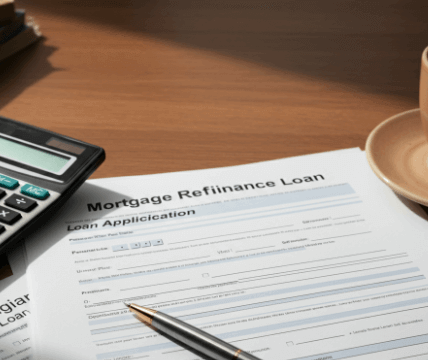Understanding when to refinance can make all the difference when managing your financial future. In this blog post, we’ll explore how soon you can refinance a mortgage in Florida and discuss the factors influencing your decision. Whether you strive to lower your monthly payments or leverage your home’s equity, knowing the optimal timing to refinance a mortgage in Florida is crucial for maximizing your benefits and ensuring long-term financial stability. Let’s dive into the essential considerations to help you make an informed decision.
As real estate investors, Steve Daria and Joleigh emphasize the importance of timing when considering a mortgage refinance in Florida. They recommend monitoring market trends, interest rates, and personal financial circumstances to determine the right moment to act. By strategically planning their refinancing decisions, they have successfully maximized their investments and secured favorable terms.
Understanding Mortgage Refinancing
Refinancing a mortgage involves replacing your current home loan with a new one, usually to secure a better interest rate, reduce monthly payments, or alter the loan term.
While refinancing can lead to considerable savings, it’s important to be aware of the associated costs, making the timing of the refinance crucial.

Benefits of Refinancing Your Mortgage
Here are the compelling benefits of refinancing your mortgage:
Lower Interest Rates
Obtaining a lower interest rate can reduce your monthly settlement and save you money over the life of the loan.
For instance, if you originally took out a mortgage at 5% and refinance to a new rate of 3.5%, you could save a few dollars in interest for the duration of the loan.
Shorter Loan Term
Refinancing to a shorter loan period, like changing from a 30 to 15-year mortgage, can help you complete your mortgage faster.
Although monthly payments may be higher, you’ll save on the total interest paid.
Accessing Home Equity
Cash-out refinancing permits you to take out a new mortgage for more than you owe on your current loan and receive the difference in cash.
This can be helpful for funding home renovations, settling a high-interest debt, or investing in other opportunities.
For example, if your home’s value has increased and you borrowed $150,000 on your mortgage, you could refinance to a new loan of $200,000 and use the $50,000 cash for improvements or other needs.
Get An Offer Today, Sell In A Matter Of Days
When is the Best Time to Refinance a Mortgage in Florida?
Timing is a key factor when deciding to refinance a mortgage in Florida.
Here are some indicators that it might be the right time:
Falling Interest Rates
One of the basic reasons to refinance is to take advantage of lower interest rates.
If market rates have decreased since you took out your first mortgage, refinancing could save you substantial amounts in interest over the life of your loan.
For instance, refinancing from a 4% rate to a 3% rate can lower your monthly payments and reduce your total interest paid.
Improved Credit Score
Your credit score greatly affects the interest rate you will qualify for.
If your credit score has increased since you took out your original mortgage, you might qualify for a lower rate.
For example, if your credit score has risen from 650 to 750, you could qualify for a more favorable interest rate, making refinancing advantageous.
Increase in Home Value
If the value of your home has increased significantly, refinancing might allow you to borrow more and take cash out.
This can be particularly beneficial for funding major expenses or investments.
For example, if your home’s value has increased from $250,000 to $300,000, you could refinance and access some of that equity for renovations or other financial needs.
Long-Term Plans
Consider your long-term plans before refinancing.
If you intend to stay in your home for many years, the savings from a lower interest rate can outweigh the costs of refinancing.
Conversely, if you plan to move soon, the upfront costs of refinancing may not be justified.
Steps to Refinance A Mortgage in Florida
Here’s how you can refinance a mortgage in Florida:
- Assess Your Financial Situation: Begin by evaluating your financial situation. Compute your debt-to-income ratio and ensure you have a stable cash flow and a satisfactory credit score.
- Research Lenders: Shop around for refinancing rates and terms. Compare deals from few lenders to find the one that best meets your needs.
- Gather Documentation: Prepare the necessary documentation, including evidence of income, tax returns, bank statements, and data about your current mortgage.
- Apply for Refinancing: Present your application to the lender of your choice. Be prepared for a credit check and an appraisal of your home.
- Close the Loan: Once your application is approved, you’ll need to close the new loan. This involves signing the final documents and paying any closing costs.
Costs Associated with Refinancing
While refinancing can lead to savings, it’s important to be aware of the associated costs:
- Closing Costs: These can include application fees, appraisal fees, and attorney fees. For example, closing costs can range from 2-5% of the loan amount, so on a $200,000 loan, costs could be between $4,000 and $10,000.
- Prepayment Penalties: Some mortgages have prepayment penalties for paying off the loan early. Check your current mortgage terms to determine if any penalties apply.
- Private Mortgage Insurance (PMI): If you refinance for more than 80% of your home’s value, you may need to pay PMI.

Common Refinancing Strategies
Explore the various common refinancing strategies available to homeowners in Florida, helping you determine the best approach to take advantage of current market conditions.
- Rate-and-Term Refinance: Rate-and-term refinancing involves exchanging your existing mortgage with a new one that has a lower interest rate or a different loan term.
- Cash-Out Refinance: A cash-out refinance lets you to take out a new mortgage for more than you owe and receive the difference in cash.
- Streamline Refinance: Government-backed loans, such as FHA and VA loans, offer streamlined refinancing options with reduced documentation and lower costs.
Tips for a Successful Refinance
Discover essential tips to help homeowners navigate the refinancing process effectively, ensuring a successful outcome in leveraging their mortgage options.
- Improve Your Credit Score: Before refinancing, take the initiative to improve your credit score. Pay down debt, make on-time payments, and check your credit report for errors.
- Shop Around: Don’t settle for the first offer you receive. Check rates and terms from several lenders to ensure you’re getting the best deal.
- Consider the Costs: Calculate the break-even point for your refinance – the point at which the savings from the lower rate will outweigh the costs of refinancing.
- Plan for the Future: Think about your long-term plans and how they align with the terms of the new loan. Ensure the refinance fits with your financial goals and future plans.
Conclusion
Refinancing a mortgage in Florida can be a strategic move that offers significant financial benefits. By understanding the factors that influence when to refinance, you can make choices aligned with your financial goals. Remember to assess your financial status, shop around for the best rates, and carefully consider the costs involved.
**NOTICE: Please note that the content presented in this post is intended solely for informational and educational purposes. It should not be construed as legal or financial advice or relied upon as a replacement for consultation with a qualified attorney or CPA. For specific guidance on legal or financial matters, readers are encouraged to seek professional assistance from an attorney, CPA, or other appropriate professional regarding the subject matter.

